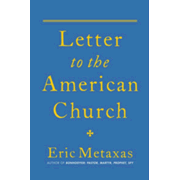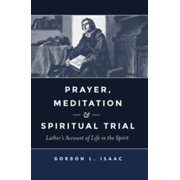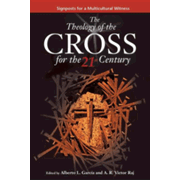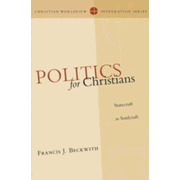OUR READING for the Tenth Sunday after Pentecost comes
to us from the Gospel According to Saint Matthew. In the reading, we have previously known that Jesus
had just been told about the beheading of John the Baptist. The resultant
effect was that Jesus tried to take his disciples away for rest.
However, the needs of the people came upon him…
Now
when Jesus heard this, he withdrew from there in a boat to a lonely place
apart. But when the crowds heard it, they followed him on foot from the towns. As
he went ashore he saw a great throng; and he had compassion on them, and healed
their sick. When it was evening, the disciples came to him and said, “This is a
lonely place, and the day is now over; send the crowds away to go into the
villages and buy food for themselves.”
Jesus said, “They need not go away;
you give them something to eat.”
They said to him, “We have only five
loaves here and two fish.”
And he said, “Bring them here to me.”
Then he ordered the crowds to sit
down on the grass; and taking the five loaves and the two fish he looked up to
heaven, and blessed, and broke and gave the loaves to the disciples, and the
disciples gave them to the crowds. And they all ate and were satisfied. And
they took up twelve baskets full of the broken pieces left over. And
those who ate were about five thousand men, besides women and children.
(Matthew 14:13-21)
To
A Lonely Place…
Our gospel writer parallels what had been written
decades earlier in the Gospel According to Saint Mark. Thus we possess this
wonderful story passed to Matthew about the meaning of discipleship. We also know
that Matthew had previously related to his readers that John the Baptist had
been executed. Now here our author described our Lord’s response to that event.
Jesus gathered his disciples together. He wanted to take them away for a
restful time, possibly a time of reflection and mourning over the loss. Sailing
in a boat, being transported in a nave as it were… it seemed that a sabbatical
was fitting for both rest and his teaching purposes. He and the disciples so
went to a “lonely place” ( in Greek -
eremon).
For listeners
hearing this message in Matthew’s day, knowing that the prophetic words of
John the Baptist had been long silenced, they listened and heard that Jesus took both his
own disciples… and those sent by John… to a quiet place. Jesus seems to have desired
to turn his attention to their needs, ministering to those who mourned the loss
of right and righteousness, rather than seeing to the needs of the whole of
society around him. But the gospels revealed, that it was not to be so.
For example, the
Gospel According to Saint Luke reports that having found where Jesus was, people
went to the area of Bethsaida. They went to tell Jesus of their need. When they
arrived, Jesus saw them. He immediately had compassion (in Greek – esplanchnisthe) upon them.
Suffering over
those who were ill and disabled because of human sin, he worked to heal them.
The gathering and healing continued until the end of that day. Eventually darkness
came… and a great moment unfolded. What came afterward for the disciples was a prophetic
event that pointed beyond itself… to future events which occurred later in
Matthew’s telling. This instance we see as an example of a feast yet to come… the
Last Supper held with Jesus’ disciples.
We note that
Jesus commanded his disciples to gather from their own resources… which was seemingly a
too meager amount of food. Taking this giving from them, he blessed the
providence and then commanded his followers to distribute the resulting fare to
the people. The miracle that occurred was then so profound that the record of
it exists today written across all four gospel witnesses. We find that our
reading here related that at least 5,000 men were fed… and more! Counting women
and children, many biblical scholars calculate that the number related by
Matthew could easily have been greater than 10,000 persons.
While some have
said that the great numbers reported at the time was merely Matthew’s way of inflating
the incident, and he was boasting that a “zillion people were fed”, against
that charge we see with certain perspective that Matthew emphasized that
exactly… twelve baskets of food remained. We therefore rightly stress for this
teaching… that there was at least one full basket for each disciple… an “exact
number. Cannot we then assume that the three thousand was exact as well? Was
Matthew, therefore, telling his church and our own… that given our abundant
receiving, we are to continue to feed both community and the world around us?
Indeed so, but I believe the fare is to be more than bread.
Advanced
Basket Weaving!
With the guidance from the Holy Spirit, it seems that
Matthew related to his church… and we ourselves… that disciples are to
participate in the miraculous event. We may do so if we dare in faith.
Please note the
progression here! First, the disciples retired to a place set apart. As a
Christian, I ask whether this resembles any house church or stained-glass
adorned worship space the Spirit shall choose? I do believe so.
Secondly, do
those who are hurting… made ill by the power of either personal or corporate
sin… also gather even now to obtain healing? Again… I believe so. Surely there
in an appointed sacred and set apart place… healing forgiveness is possible… where such
as bread, fish and wine emerge as meager offerings. The resulting scene is that
miracles of God’s grace spring forth. From the meager filling, a fullness of
community and love spills forth. What’s more… there remains an abundance of
grace left over to be taken out into the world.
Please be keenly
aware of the scriptural correlation between the bread and the Body of Christ, but
we sometimes struggle with the ancient imagery of the fish. To recall Church
history and explain that for the early Christian church… the fish took on a
very special meaning.
Recall that the
Greek word for fish is “icthus”. This
word eventually became an anachronym scratched on amulets and bracelets worn by
disciples. The symbol identified a person as a Christian. To Christians, the
word became spelled out: (I) “Isuous” for Jesus, (CH) Christos,
for Christ, (TH) “Theos” meaning God,
(U) “Ueos” meaning Son, and finally … (S) “Soter” or Savior.
The sign of the
fish inscribed on an amulet thus became a late first century insignia that was often
hidden from the hostile world… and was made more important by persecutions to
come. We need remember this lesson of hidden strength today.
Let us more so
remember that Jesus commanded his disciples to gather whatever their meager
means… and without selectivity… and begin to care for the world around them.
Therefore, it seems prudent for us to do just as the Holy Spirit empowered the early
church of Matthew. We recall that they worked at a time of great persecutions,
yet the Word of God empowered the hidden Church witness, work and feasting.
We also are
called to work in this hurting world..., a world not always receptive to our
Christian message. Given this fact, we are invited by our Lord’s resultant
bounty of forgiveness and faith. We are to go out in ministry from the confines
of the Church as our “lonely place”. To be sure, we are not to be driven inward
by our own desires in navel-gazing for congregational growth or sanctuary
preservation, but are sent by our Lord go out and proclaim the crucified and risen Christ! We
are to care prayerfully and watch miracles occur. We are to gather the sinful,
including ourselves… together… and “give them to eat”. We are to work the sure
and certain numerology of Matthew, who said “five thousand men” and more.
This is a
daunting task to be sure, but we of the Church who are fed miraculously from
the bounteous basket of our Lord, are prompted by the Spirit toward confession and repentance.
Let us not doubt the Holy Spirit! We are provided the eternal gift of His real body and blood for the
forgiveness of sin. We are strengthened to finally receive an admonition to go
from our Lord’s feast… and freely share the Good News of his kingdom. Thanks be
to God!






